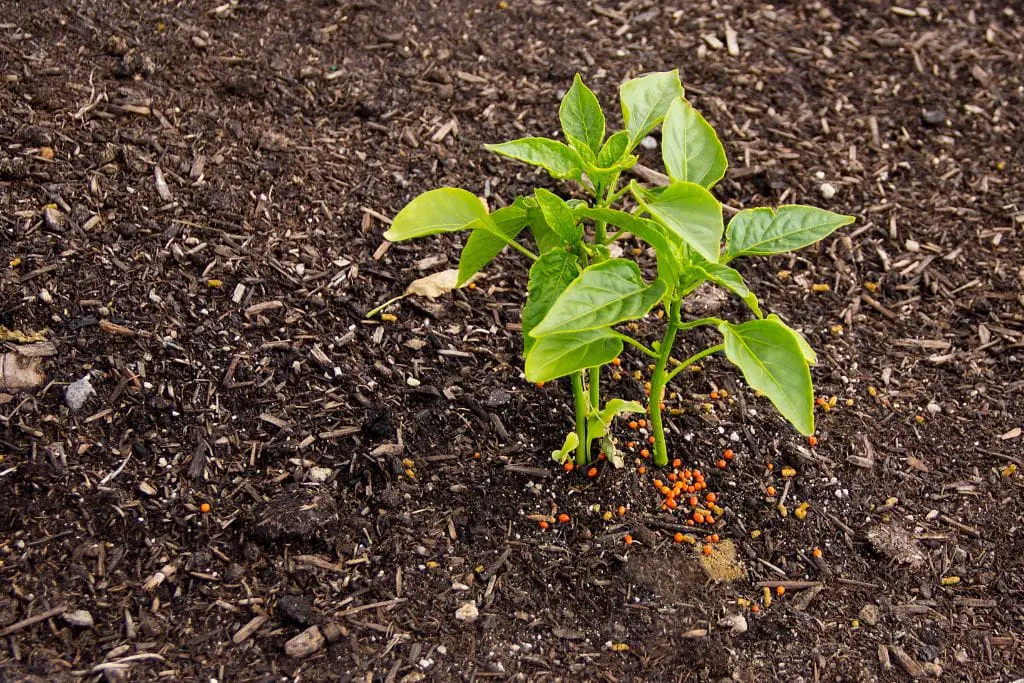Phosphorus is one of the most important things to keep in mind when it comes to organic farming. This important mineral is an important part of strong plant growth and when added to organic fertilizers, it becomes an important part of an environmentally friendly permaculture approach.
The importance of Phosphorus:
Along with nitrogen and potassium, phosphorus is one of the three most important nutrients required for normal plant growth. Energy transfer, photosynthesis, and nutrient movement are just some of the biological processes that would not occur without energy. Sufficient phosphorus contributes to strong roots, better flowering and the overall resilience of the plant.
Environmentally Friendly Ways to Use Fertilizers:
Some gardeners care deeply about the environment, so organic fertilizers from natural sources have become very common. These fertilizers not only provide plants with the nutrients they need but also improve soil health and promote the growth of microorganisms. Organic fertilizers release nutrients more slowly than synthetic fertilizers, reducing the chance of nutrient pollution and loss to the environment.
Organic Fertilizers and Phosphorus:
Porous materials such as bone meal, phosphate rock and guano are often used to obtain phosphorus from organic fertilizers. In addition to phosphorus, these sources also provide other micronutrients to help plants get all the nutrients they need. This natural method provides plants with a balanced diet, making the crop healthier and more resistant to damage.
Why Organic Phosphorus is a Good Idea?
- Sustainable Growth: Plants can use organic phosphorus to grow indefinitely because it does not deplete natural resources.
- Soil Enrichment: To improve the structure and fertility of the soil, it is recommended to use organic fertilizers. This is good for the health of the soil in the long term.
- Reduced Environmental Impact: Organic phosphates reduce the chance of nutrients entering nearby waterways, keeping them clean.
- Multicellular Activity: Adding organic fertilizer to the soil can promote plant growth by increasing the chance that beneficial microorganisms will survive there.
Organic Phosphorus: How to Add It
Choosing a fertilizer rich in phosphorus ingredients is an easy way for gardeners to add organic phosphorus. To ensure your plants receive adequate nutrients during their growth cycle, use these fertilizers at planting or as directed on the label.
How Organic Gardening will Change in the Future:
As the world struggles with environmental problems, the importance of organic gardening practices is becoming increasingly apparent. As the world moves towards more sustainable agriculture, the use of organophosphorus in fertilizers is in line with this goal. Creating a conscious and responsible connection with nature is just as important as growing healthy plants.
Gardeners Need to Know More:
To grow the gardening community, people need to share information about how organic phosphorus can help. Information about the benefits of using phosphorus-rich organic fertilizers can be shared through garden centers, online forums and educational seminars. Sharing this information with gardeners can make it easier for many to use environmentally friendly methods.
Supporting Biodiversity:
Building an ecosystem is an important part of organic gardening, not just growing plants. The use of organophosphorus can increase the ecological diversity of the soil. A stable and balanced environment depends on healthy soil filled with different types of microorganisms, insects and fungi. This is not about using chemicals to solve the problem, but about making the ecosystem self-sufficient.
What a Growing Population Needs:
As the world’s population grows, food must be produced in a way that does not harm the environment. A good solution is organophosphorus, which is part of organic farming. Environmentally friendly organic gardening ensures there is enough food for everyone by growing plants that are healthier and produce more food.
Conclusion:
If you want to garden sustainably and environmentally, it is important to understand the role of phosphorus in organic fertilizers. Gardeners who choose organic products benefit both their plants and the environment. If you want to grow your plants in a way that is good for the environment and your plants, you should use organic fertilizers rich in phosphorus.
FAQs:
1. What effect does phosphorus have on plant growth?
Phosphorus is an important nutrient that plays a crucial role in a variety of plant processes, including energy transfer, photosynthesis, and nutrient transport. It helps with root development, flowering, and the overall resilience of the plant.
2. What is the difference between organic fertilisers and synthetic fertilisers?
Organic fertilisers come from natural sources such as bone meal, phosphate rock, or guano, while synthetic fertilisers are chemically manufactured. Organic fertilisers release nutrients slowly, promoting sustainable growth and reducing the risk of environmental pollution.
3. Why choose organophosphorus over synthetic alternatives?
Organophosphorus offers a sustainable and environmentally friendly alternative. It promotes soil health, reduces the risk of nutrient loss, and stimulates beneficial microbial activity, promoting a balanced and resilient ecosystem.
4. How do I incorporate organophosphorus into my gardening routine?
Choose an organic fertiliser rich in phosphorus and follow the recommended application guidelines on the product label. Apply during the planting season to ensure a steady supply of nutrients to the plants.
5. Can organophosphates be used on all types of plants?
Yes, organophosphates are suitable for use on a variety of plants, including flowers, vegetables, and fruits. Its natural and balanced nutritional profile makes it a versatile choice for promoting the health and vitality of various plant species.


Your point of view caught my eye and was very interesting. Thanks. I have a question for you.